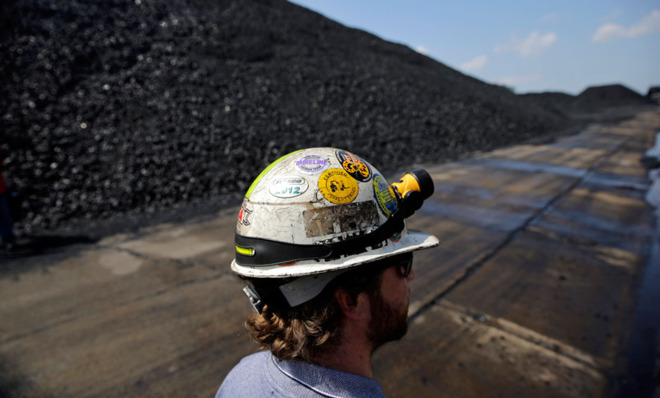This plan to stop global warming is so crazy it just might work
Step one: Buy all the coal. Step two: Don't touch it.


A free daily email with the biggest news stories of the day – and the best features from TheWeek.com
You are now subscribed
Your newsletter sign-up was successful
Let's be honest: No one knows exactly what to do about global warming.
Carbon taxes and other abatement schemes in the West might sound good, but they are of little to no importance in the grand scheme of things, given that the vast majority of new emissions will come from developing countries that aren't going to keep hundreds of millions of people in dire poverty in exchange for a thumbs-up from Al Gore. And what of the various vaunted alternative sources of energy — wind, solar, and so forth? They all have problems, and are too expensive anyway. (What's that you say? Don't worry because one day they won't be this expensive? Well, let me know when that day comes.)
So here's an unconventional idea, courtesy of the energy analyst Matt Frost. It's risky. It's very expensive. It might even be crazy. But it also just might work — and if we want to, we can do it today.
The Week
Escape your echo chamber. Get the facts behind the news, plus analysis from multiple perspectives.

Sign up for The Week's Free Newsletters
From our morning news briefing to a weekly Good News Newsletter, get the best of The Week delivered directly to your inbox.
From our morning news briefing to a weekly Good News Newsletter, get the best of The Week delivered directly to your inbox.
We know that the main factor in anthropogenic global warming is coal. Coal is the dirtiest energy source — and it's also the cheapest. As long as that's true, people will keep burning coal, and filling up the atmosphere with CO2 and warming the planet.
Frost's plan is simple: The United States government should borrow as much money as it takes, buy up all of the country's coal resources, and hold them in the ground in perpetuity. That way, that coal doesn't end up in the atmosphere. It just stays up in the ground.
As Frost points out, there are plenty of "clean coal" initiatives out there that would seek to capture coal fires' carbon emissions and put them back in the ground. All of them, as best as we can tell, are dubious and unproven. The best way to sequester that carbon is to never take it out of the ground.
Buying up all the coal instead of simply confiscating is a good idea as far as the rule of law goes. But it would also have another hugely positive effect: driving up global prices. The U.S. has the world's largest share of the world's coal reserves and exports millions of tons every year. With U.S. coal out of the market, and supply greatly diminished, the global price of coal would rise a lot — enough to make the next best alternative, natural gas, competitive. This is especially true in the U.S., where the infrastructure to extract natural gas from the ground already exists. We don't need to get the Chinese to cooperate with us on this: By simply retiring our own coal, we make coal more expensive for everyone else, and other sources of energy more competitive.
A free daily email with the biggest news stories of the day – and the best features from TheWeek.com
As Frost notes, there are many pitfalls, and not just the lack of any specific numbers on how much all this would cost. The plan would kneecap the U.S. coal industry, and you can be sure it won't go down without a fight. Coal-industry workers would see their livelihoods crippled, too. And so on.
Frost has been working on his plan in his spare time. It's time for it to get a wider audience so that it can be fully fleshed out. Maybe it's a blind alley — but until we know that, it's certainly one worth exploring. Because as risky, expensive, and unlikely as this plan is to succeed, it still just might.
Pascal-Emmanuel Gobry is a writer and fellow at the Ethics and Public Policy Center. His writing has appeared at Forbes, The Atlantic, First Things, Commentary Magazine, The Daily Beast, The Federalist, Quartz, and other places. He lives in Paris with his beloved wife and daughter.
-
 Political cartoons for February 22
Political cartoons for February 22Cartoons Sunday’s political cartoons include Black history month, bloodsuckers, and more
-
 The mystery of flight MH370
The mystery of flight MH370The Explainer In 2014, the passenger plane vanished without trace. Twelve years on, a new operation is under way to find the wreckage of the doomed airliner
-
 5 royally funny cartoons about the former prince Andrew’s arrest
5 royally funny cartoons about the former prince Andrew’s arrestCartoons Artists take on falling from grace, kingly manners, and more
